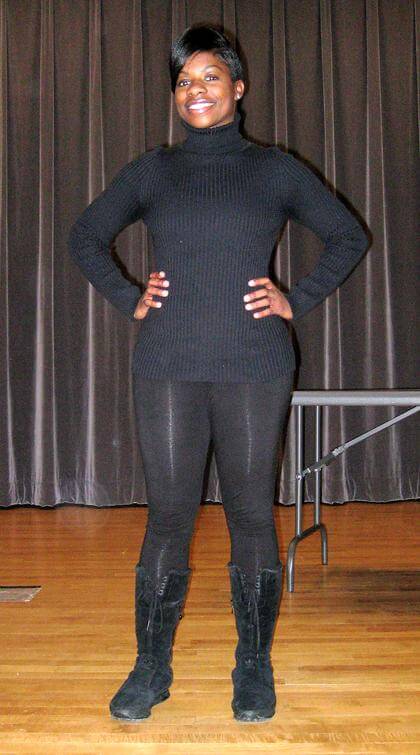By Anna Gustafson
Queens residents caught an intimate glimpse last week into the life of Melba Pattillo Beals, one of the Little Rock Nine students who faced mobs chanting death threats and dodged lighted sticks of dynamite to become one of the first black students to attend Central High School in Arkansas.
Urban Stages, a Manhattan-based theater company, presented “Warriors Don’t Cry” at Flushing Library Saturday as part of the Queens institution’s Black History Month celebration.
The one-woman play is an adaptation written by Pulitzer Prize finalist Eisa Davis of Beals’ 1995 memoir “Warriors Don’t Cry.” The title comes from a phrase Beals’ grandmother would often say to her after she had students repeatedly kick her, trip her, spit on her and threaten her with lynching when she attended Central High School in 1957.
One day, she was even attacked by a group of students shouting racial epithets and throwing dynamite and other flaming objects at her. During the same incident, she was pierced in the back by the tip of a Confederate flag.
“A lot of people know about the Little Rock Nine, but many don’t know about what happened to them once they actually got into the school,” said Danielle Thompson, the actress who played Beals.
Beals was 15 when she and eight others were the first black students to enter Central High, a move that came after the U.S. Supreme Court’s landmark 1954 ruling in Brown v. Board of Education that struck down racial segregation in public schools.
While seven of the eight state universities in Arkansas had been desegregated by 1957, the integration of Central High School was met with opposition from Arkansas Gov. Orval Faubus, who called in the state’s National Guard to surround the high school to prevent any black students from entering the day school opened Sept. 3, 1957.
After international coverage of an angry mob of more than 1,000 people and the troops barring the students from entering the school, President Dwight Eisenhower sent more than 1,000 U.S. Army troops to protect Beals and her eight colleagues.
“I remember we watched stories about Central High every night on the news,” said Fresh Meadows resident Arnie Green. “I was just a little boy then, but I remember how upset my parents were that so many people were so awful to those students. It was such a different time then. How far we have come.”
Thompson agreed that the country has evolved since 1957 but stressed that racial equality is still not a reality.
“We’ve come far, but we have so much farther to go,” Thompson said. “Why just now do we have an African-American president? Come on now, this should’ve been the norm.”
Beals went on to become a reporter and received her master’s in journalism from Columbia University. She, along with the other students who integrated Central High School, were awarded the Congressional Gold Medal at the White House in 1999.
“I’m really happy to know she’s successful after all she went through,” said Stacy Song, 17, of Flushing. “It’s really good that they do this play because it’s so important to let people know about the history of the country.”
Reach reporter Anna Gustafson by e-mail at agustafson@cnglocal.com or by phone at 718-260-4574.































